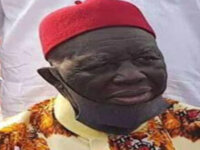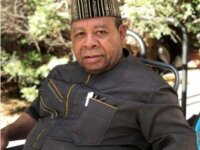The plan by the National Assembly to amend the constitution of Nigeria is not coming to public hearing for the first time. So, when the Senate President, Mr. Ahmed Lawal, tried again to impress on Nigerians that the constitutional amendment being planned for June 2021 by the National Assembly would address issues to ameliorate violence during and after the 2023 elections, he left many Nigerians wondering just how.
A few years ago, the Senate received a 33 – item report on the fourth alteration of the 1999 Constitution of Nigeria. The report proposed amendments which included reducing the powers of the federal government in the exclusive legislative list, financial autonomy for local government and state legislatures and a downward review of the minimum age for elective public officers, among other issues.
While the proposal called for the devolution of power to the states by reviewing the content of the exclusive list, it failed to review the country’s revenue sharing formula and the need for resource control by various states.
“The issue that concerns my own people is excluded,” lamented Foster Ogola, PDP-Bayelsa, who made an argument for “true federalism and economic restructuring, so that every state can control its resources.” Also, Adamu Aliero, APC- Kebbi, asked the Senate to step down the item on devolution of power, because it was wrong to give states more powers without giving them a greater share of the national revenue.
The bill also sought constitutional provision to compel Mr. President and Governors to submit their list of ministers and commissioners respectively, together with their portfolios to the National Assembly and advocated for a 35 per cent affirmative action for women, within 30 days of inauguration. The bill equally sought to ensure that a minister for the Federal Capital Territory, FCT, was appointed from one of the six area councils that constitute Abuja, so that FCT would be represented in the Federal Executive Council.
In seeking autonomy for local government areas, it proposed that only democratically elected councils should directly receive allocations from the federation accounts. In effect, the bill intended to abrogate the age-long state and local government joint-account system.
But President Buhari rejected the proposed amendments to Nigeria’s electoral act. In a letter addressed at the time to the Speaker of House of Representatives, Yakubu Dogara, President Buhari said the amendments, among other things, infringed on the rights of the Independent National Electoral Commission, INEC. With the rejection of amendments by the President, the next option left for the National Assembly was to override the President’s veto. But they chose not to do so.
There is no doubt that one of the major problems plaguing Nigeria today and slowing its honest march towards true democracy is its constitution. Amending its electoral laws is just not enough. Indeed, what the country needs is not an amendment of a constitution that was originally drafted by the military to keep them perpetually relevant in the internal affairs of the Nigerian people. The main job of the military is the external defence of the country’s borders and the security of the integrity of its sovereignty. They should leave the police force to worry about the internal security of lives and properties of the Nigerian people.
And so, what Nigeria needs is a complete abrogation of its current constitution and to get competent constitutional lawyers to produce one that will take into account the interest of its multi ethnic composition, a fair distribution of its job openings and resource control measures, its need to develop a middle class manpower to manage an emerging industrial and technological age, its need to mentor young adult Nigerians to hold sensitive public offices, its need to evolve a system that respects public laws and so on.
The military, by its very nature and training is not in any way equipped to manage a pluralistic society like Nigeria and their very presence in the democratic setting is the reason Nigerians make so many mistakes in the dispensation of democratic values. That is why there is simply no discipline in the system and you find, for instance, that no one obeys traffic laws when the lights turn red. That is why there is so much robbery, kidnapping, ritual killings and all the other evils that are gradually but steadily creeping and eating deeply into the fabric of the Nigerian society.
When legislators meet the next time, let them sit down and nominate one constitutional lawyer from each of the six geopolitical zones, create a road map for them and request them to draft a more meaningful, more accommodating and more transparent constitution for the people of Nigeria. Only when this is done will there be peace in the land. With peace comes progress. With progress comes love – “One Love”. That is what Nigerians deserve. That is what Nigerians want. And that is what they should have.




